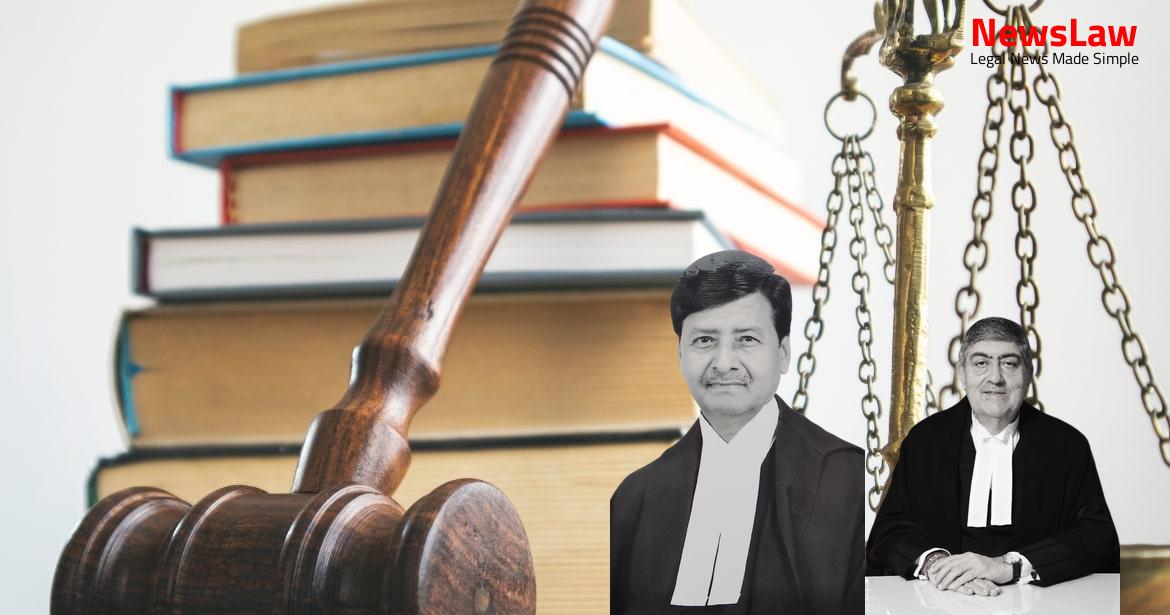In a recent legal case, the court delved into the intricate difference between promotion and upgradation in government service law. The analysis focused on the specific criteria and processes involved in determining whether the benefits received by employees constitute a promotion or a mere upgradation. This blog explores the court’s thorough examination of the legal principles surrounding promotion and upgradation in the context of employee entitlements and benefits.
Facts
- Appellants were working as Telephone Operators with the Delhi Fire Service (DFS).
- An ACP Scheme was introduced on 9.8.1999 granting financial upgradations after 12 and 24 years of service.
- Appellants claimed entitlement to first financial upgradation in 1999 or after 12 years of service, which was denied by respondents treating the deployment as a promotion.
- Controversy: Whether deployment as RTOs was a promotion or mere reorganisation entitling appellants to ACP separately.
- Appellants filed OA No 983/1995 before CAT and succeeded, getting pay scale of RTOs.
- Reorganisation scheme approved on 10.10.1983 by Municipal Corporation of Delhi.
- Condition of 5 years of regular service imposed for deployment as RTOs.
- Representation made on 31.5.2001 for benefits of ACP Scheme.
- Ninety-six posts of Radio Telephone Operators created due to reorganisation of wireless communication system.
- The High Court passed a judgment on 8.5.2009 in response to a writ petition filed by the respondents.
- The Delhi High Court was approached by the respondents to challenge the earlier order through a writ petition (WP (C) No 8406-07 of 2004).
- Training in two batches under the supervision of the Wireless Officer was a requirement.
- The High Court viewed the conversion of posts of Telephone Operators to RTOs as a promotion due to conditions attached to it.
- The High Court determined that the appellants were entitled to the benefits of the ACP Scheme despite the conversion of posts not being a traditional promotion.
- The Tribunal’s decision on the matter was made on 29.10.2003, deeming promotion and cadre merger as distinct concepts with specific qualifications for promotion.
- Conversion of posts was justified as a governmental action in response to certain needs or circumstances.
Also Read: Supreme Court Judgment on Single Till Mechanism for HRAB Calculation: A Comprehensive Analysis
Issue
- The issue at hand is whether the benefits received by the appellants from the reorganisation scheme of wireless and communication systems can be considered as a promotion.
- It is also questioned whether the appellants are still entitled to a financial upgradation under the ACP Scheme despite the benefits from the reorganisation scheme.
- Reference is made to a circular dated 24.2.1984 which mandated a two-month training at the headquarters of DFS.
Arguments
- Existing Telephone Operators would be in a higher pay scale after short training.
- Requirement of 5 years of experience as a Telephone Operator is essential.
- Reorganization of wireless and communication system in DFS for increased efficiency.
- Candidate eligibility criteria outlined based on experience and training.
- Difference between upgradation and promotion as per legal principles.
- Promotion defined as advancement in rank or grade leading to higher position or pay scale.
- Three key aspects highlighted in the present case: 5 years minimum service, higher financial emoluments, specialized training requirement.
- Case not covered under promotion without selection process due to training and service benchmark being part of the selection process.
- Argument to read principles in the context of earlier paras presented.
Also Read: Selection and Appointment of Judicial Officers in Himachal Pradesh
Analysis
- Promotion may include advancement to a higher pay scale without moving to a different post.
- Advancement to a higher pay scale without change of post may be termed as upgradation or promotion.
- If the advancement to a higher pay scale is a result of a process with elements of selection, it will be considered a promotion.
- Distinction between promotion and upgradation lies in the process involved and the consequences.
- Upgradation simpliciter does not require application of reservation rules, while promotion does.
- In cases of upgradation, screening out employees with adverse records may not amount to a selection process for promotion.
- Upgradation involving selection criteria similar to promotion will be considered as promotion.
- In upgradation, the candidate retains the same post but receives a higher pay scale.
- Advancement to a higher position and pay scale, both termed as promotion, are not necessarily the same.
- Where upgradation involves a selection process, rules of reservation will apply.
- Upgradation involves transfer of a post from lower to higher grade with placement of the incumbent in the higher grade.
- Promotion covers advancement to a higher position or rank, as well as advancement to a higher grade.
- Promotion in service law can refer to advancement to a higher pay scale or a higher post.
- In some cases, denial of higher grade for upgradation may be based on adverse entries in the employee’s service record or past punishments.
- Promotion means advancement or preferment in honor, dignity, rank, or grade.
- In cases where there is a requirement of a minimum of 5 years of service, specialized training, and significantly higher financial emoluments, promotions disentitle employees from the benefits of the ACP Scheme.
- The complete factual differences between two posts must be examined to determine entitlement to the ACP Scheme benefits.
- Appeals were dismissed, with each party bearing their own costs.
Case Title: RAMA NAND Vs. CHIEF SEC.GOVT.OF NCT OF DELHI (2020 INSC 481)
Case Number: C.A. No.-005829-005830 / 2012



